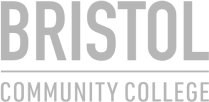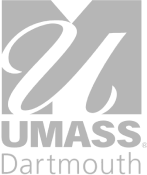Artifacts are to be submitted as part of the Capstone Delivery Portfolio at 6-month, 1-year, and 3-year marks, to demonstrate your progression and identify areas of development. Below are artifact exemplars for staff, instructional staff and managers/leaders.
Artifacts
Home » Assessment Tools »
ARTIFACT EXEMPLARS
Below are examples, and the specific artifacts that you submit will depend on your professional tier, individual interests, goals, and college strategic plan.
Foundational Tier:
- Self-Assessment Narrative and Survey: Reflection on ARE awareness, understanding of racial equity, identification of implicit bias and microaggressions
- Tool Utilization: Documentation of tools used to gather data on ARE, highlighting identified barriers
Intermediate Tier:
- Scrutinizing Data: Documentation of qualitative and quantitative data analyses related to the impacts of implicit bias and microaggressions in a specific area of higher education
- Being Open to New Learning: A reflective journal highlighting personal growth, newfound insights, and areas for improvement while addressing the impacts of implicit bias and microaggressions.
Advanced Tier:
- Transformational Initiatives: Implementation plan and documentation of comprehensive strategies designed to mitigate implicit bias and microaggressions at both individual and institutional levels
- Guiding Others: Artifacts showcasing mentorship and guidance provided to peers, evidenced by their enhanced understanding and application of ARE principles
- Advocacy and Leadership: Documentation of active leadership in initiating systemic changes within the institution, promoting equitable policies, and advocating for a racially inclusive environment.
Foundational Tier:
- Recognizing the Context and Focus of ARE Initiatives: A brief report or presentation highlighting an overview of ongoing ARE initiatives within the institution, including their goals and intended impact
- Noticing and Understanding the Reality and Impact of Achieving Racial Equity: A reflective essay discussing the personal realization of the importance of racial equity in higher education and its potential impact on students, faculty, and the institution as a whole
- Knowing When to be Deliberate and Intentional: Documentation of incorporating specific strategies into teaching practices that intentionally address implicit bias and promote inclusivity in the classroom environment
- Seeking Different Perspectives: A summary of a collaborative discussion or workshop organized to gather diverse perspectives on addressing racial equity and reducing microaggressions within the academic setting
- Using Existing Tools to Gather Data: A report summarizing findings from using tools or surveys to gather data on awareness and understanding of ARE issues among students and colleagues
Intermediate Tier:
- Survey and Self-Assessment Narrative: Self- reflection on ARE impacts, use of research evidence, frameworks for analysis, and insights into addressing bias and microaggressions
- Action Plan: Comprehensive plan outlining strategies to address impacts of bias and microaggressions in teaching and interactions with students
Advanced Tier:
- Equity-Infused Curriculum Design: Development and documentation of a curriculum that integrates racial equity principles into course content, assignments, and assessment methods, fostering an inclusive learning experience
- Faculty Collaboration and Mentorship: Artifacts demonstrating collaborative efforts with peers to share best practices for addressing racial equity and providing mentorship to junior colleagues in implementing inclusive teaching strategies
- Impactful Institutional Contributions: Documentation of initiatives led within the institution that contribute to a more racially inclusive environment, such as workshops, seminars, or policy advocacy
- Ongoing Research and Scholarship: Publication or presentation of research findings related to racial equity and its impact on instructional practices, contributing to the academic discourse in the field
Foundational Tier:
- Taking Stock of Current Knowledge and Understanding: A self-assessment report detailing the leader/manager’s current understanding of ARE, areas of growth, and a plan for further professional development
- Scanning for and Recognizing Potential Barriers: A summary of a team discussion identifying potential barriers to implementing ARE initiatives within the department or organization
- Maintaining a Learner Focus and Being Open to New Information: Documentation of attending a seminar, workshop, or training related to ARE and implicit bias, accompanied by a reflection on the gained insights
- Identifying and Understanding Problems or Issues: An analysis of a specific challenge related to ARE, such as recognizing and addressing microaggressions in student interactions, along with proposed strategies for improvement
- Recognizing the Need to Take a Closer Look: A memo or communication to higher leadership advocating for a more in-depth exploration of ARE issues within the institution and suggesting potential steps forward
Intermediate Tier:
- Assessing Capability and Capacity: A report assessing the organization’s capability and capacity to address racial trauma, systemic barriers, and inequities, with recommendations for needed resources or external expertise
- Reflecting on Necessary Steps: An implementation strategy document outlining the steps taken, challenges faced, and lessons learned while addressing implicit bias and microaggressions at a systemic level within the institution
Advanced Tier:
- Self-Assessment and Survey: Comprehensive self- assessment showcasing advanced ARE understanding and expertise in addressing systemic barriers
- Training Initiatives: Documentation of “Train the Trainer” sessions to spread ARE initiatives, including agendas and participant feedback
- Cultural Change Evidence: Proof of initiated cultural changes, such as policy revisions or resource reallocation, aimed at a more inclusive workplace
- Advocacy: Artifacts demonstrating advocacy for ARE, like presentations, workshops, or articles on racial trauma, equity, and inclusivity
Achieving Racial Equity
PARTNER SCHOOLS





GET IN TOUCH
Contact Stacey Kaminski, Ed.d with questions about Achieving Racial Equity training and self-assessments.





